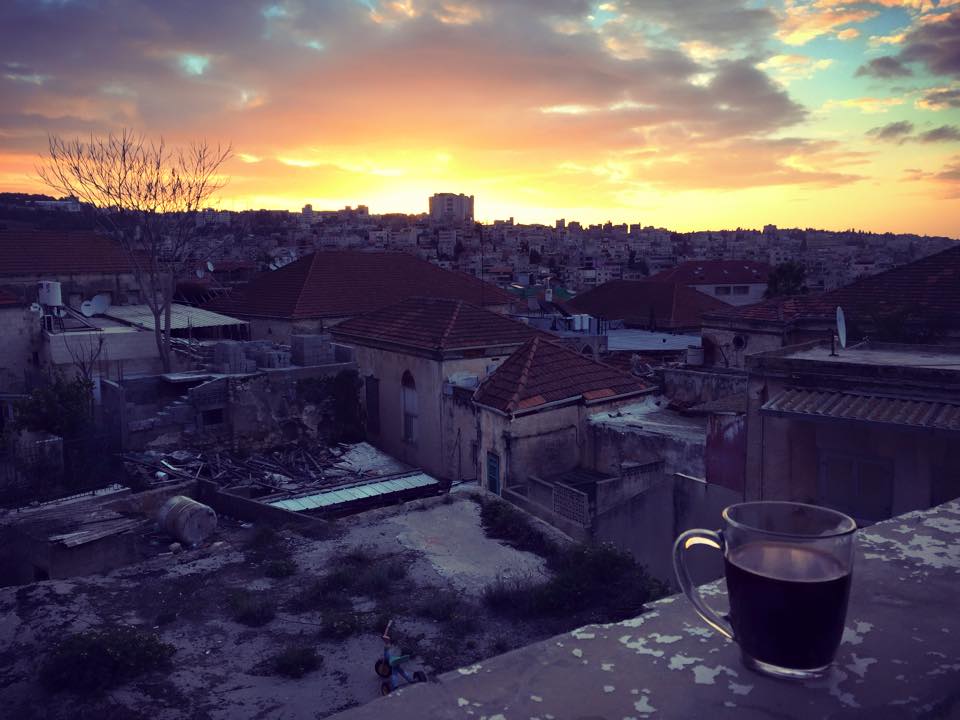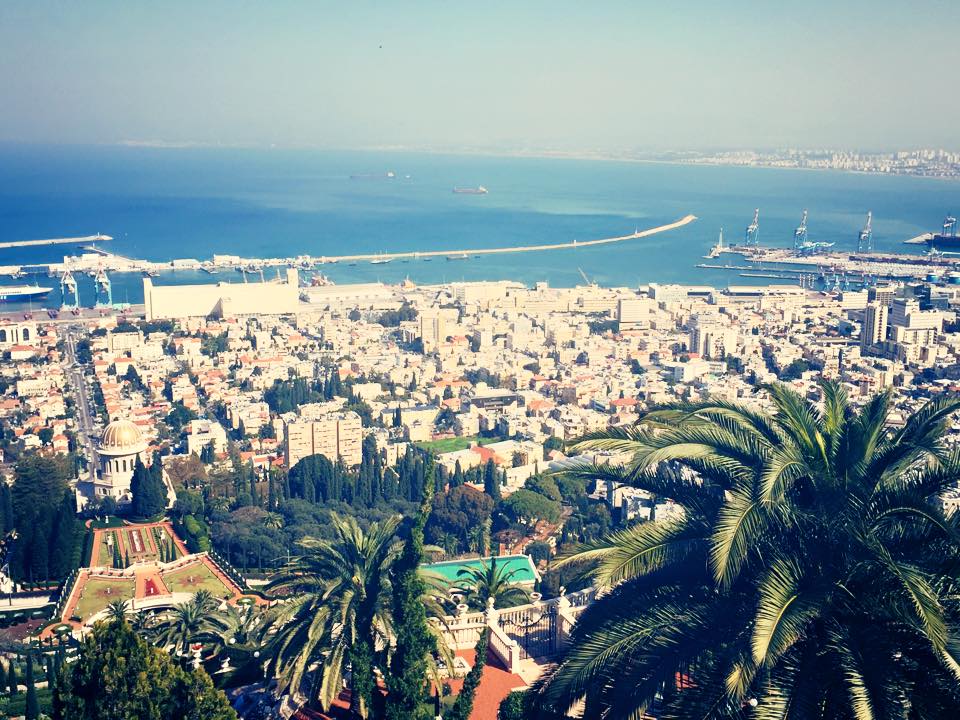It is getting late. My dinner of pita, hummus and olives from the market is making me sleepy. Or maybe it’s the delicious Israeli wine.
Anyways, the last few days have been amazing. And eye-opening.
Jerusalem and the West Bank felt like a different country. No, a different continent. After two days and three nights in wonderful Abraham Hostel, we bid farewell to our new friends and headed up north.
The scenery starts to change. Less Judean Desert, more Mediterranean sea. The cities seem different too. By the time we arrive in Nazareth, the Hebrew signs have evolved into Arabic and we find more mosques and churches than synagogues.
Arriving around mid-morning, Kara and I make our way through the narrow alleyways to Fauzi Azar Inn. A guesthouse some 200 years old, this beautiful Arabic home feels like exactly that: a home. Suraida, the granddaughter of the famous Fauzi Azar, shows us around and explains the history. Anise tea is brewing, and I just want to stay here forever.
We explore the city on our own and discover surprises around every corner: smiling children, running through the market. Sizzling hot falafel served in a warm pita for only fifteen shekels. A steep, twisting set of stairs leading to the top of the town where we watch the sun start to disappear.
The next morning we are served a homemade meal of pita, cheese, olives, tomatoes and of course, strong, sweet Turkish coffee. Properly fueled up, we jump in the van for the second day of the Nazareth Tour with Abraham Tours.
First stop is the RishLakish olive press out in the country, run by a family that is three generations strong, if you count the tiny toddler asleep in her grandmother’s beautiful olive oil stained hands. We drink tea out on the patio and nibble pita with olive oil. We hear stories. I find yet another home in this faraway land.
The next stop is Haifa, a port city with ancient buildings with modern skyscrapers seemingly growing out of the old brick. We visit the Bahá’í World Centre, where we ponder spirituality in silence and reverence.
Akko is just a little bit north. We pause here for lunch (lamb kabobs, pita, pickles and olives) and for thoughtful wandering. I can’t stop smiling at all the beautiful faces.
We end our day at Rosh HaNikra, on the border between Lebanon and Israel. Overlooking a vast expanse of the Mediterranean sea, the look-out point we have stopped at is eerily quiet. There is a maze of fences and gates leading to the now-closed cable car (we missed closing time by half an hour). I stare, confused at the fence which blocks me from where I am trying to walk. And then I speak, only the sea hearing my musings:
I don’t understand walls anymore.
Even as I say it, I realize something. This country is a microcosm of the world. So many cultures, religions, ethnicities and history all colliding together. Walls, physical or conceptual, are a sad reality, but together, we can work towards change. The tours I have been so privileged to be a part of have made these walls transparent, even if just for a day. I feel as though I have been able to imagine a world without walls.

I can’t wait for it to become a reality.
At the end of the day I sit curled up in the Fauzi Azar Inn, nibbling pita and chatting with guests. The past few days have been an eye-opening experience, and I’m so grateful to be able to have the journey of a life time.
Dare to tear down walls.
For more information about eye-opening tours and adventures around Israel, visit TouristIsrael.com.





0